29-AUGUST-2018 : TOD
Karnataka
- BBMP : New Advertisement policy :>Urban Planning
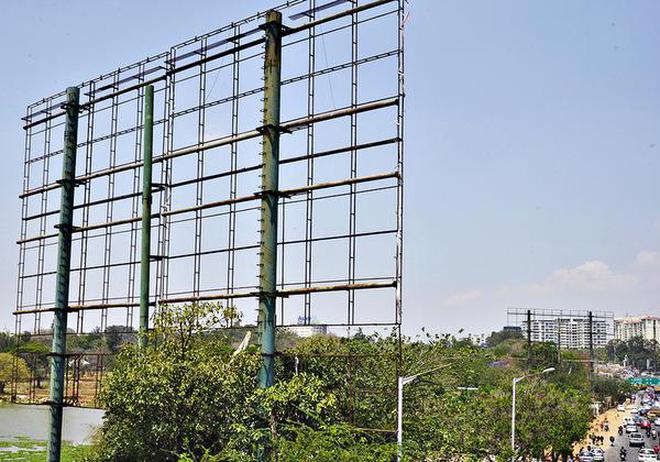
- The Bruhat Bengaluru Mahanagara Palike (BBMP) council approved the new advertisement policy — the BBMP Outdoor Signage and Public Messaging Policy and Bylaws 2018 — which prohibits all commercial hoardings in the city.
- Only advertisements of government programmes and schemes will be allowed in public interest.
- Advertisements regulated by the bylaws will be allowed on bus shelters, toilets and skywalks constructed on a public-private partnership understanding.
- Vendors, too, have been banned from carrying advertisements of any product on signages outside their shops.
- The name boards of the shops will have to follow the specifications mentioned in the bylaws, apart from ensuring prominence to Kannada.
- The policy is the result of the HC taking the BBMP to task earlier this month for its efficacy in curbing the menace of flex ads and banners. It directed the civic body to implement a new advertisement policy as well.
- It banned film posters also.
- Karnataka Prevention and Eradication of Inhuman Evil Practices and Black Magic Bill,2017/ Anti-superstition Bill.
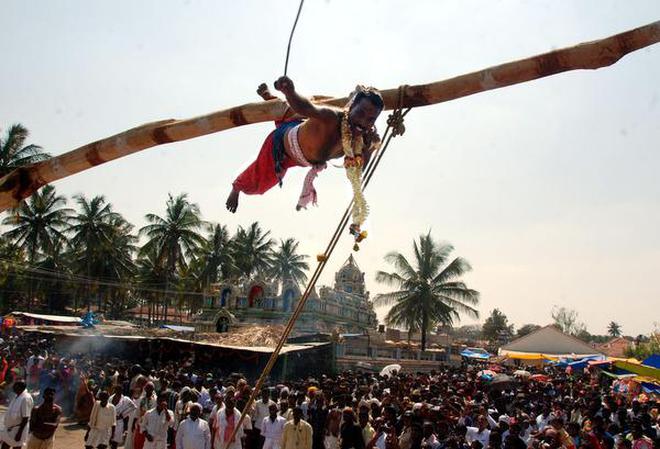
- The bill aims to help combat and eradicate other inhuman, evil sinister practices propagated in the name of so called supernatural or magical power or evil spirit commonly known as black magic by conmen with sinister motive of exploiting the common people in the society and thereby destroying the very social fabric of the society.
- It forbids practices which include persuading the performance of inhuman activities for any reason, assault on the pretext of ridding the person of spirits or ghosts, persuading others to parade naked, performing surgeries to change sex of the foetus, indulging in sexual activity in the guise of super natural powers, banning women or others from entering villages, inflicting injuries on oneself, or killing animals among other heinous acts.
- Although the bill does specifically mention Made Snana—a practice in coastal Karnataka where people roll on the food left over by Brahmins—it forbids the facilitation of people rolling over the leaves of food left over by others as it violates human dignity.
- The state will appoint a vigilance officer to take steps to prevent such practices.
- Writers and rationalists alike had backed the new law. Rural Karnataka has witnessed crimes being committed by conmen in the guise of healing people of ailments or misfortune.
- Even though such legislation cannot totally get rid of superstitions in the society, it will go some way to prevent exploitation of the gullible people. Superstition can be eradicated from the society only by proper education and teaching the children to develop scientific temper and the spirit of enquiry from a young age itself.
- slain senior journalist Gauri Lankesh had mooted the idea of such a bill in August 2013, the day after rationalist thinker Narendra Dabholkar was shot dead in Maharashtra
- Maharashtra passed its own anti-superstition law four months after Dabholk’s murder.
- Karnataka Prevention and Eradication of Inhuman Evil Practices and Black Magic Bill,2017/ Anti-superstition Bill.
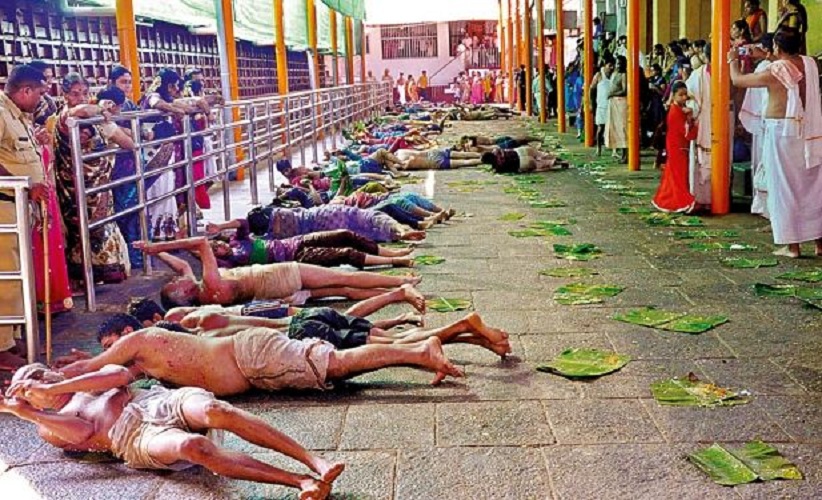
What is not banned:
- The form of the worship such as Pradakshina, Yatra, Parikrama performed at religious places
- Harikata, Keerthana, Pravachana, Bhajana, teaching of ancient and traditional learning and arts, practice, propagation and circulation
- Miracles of the deceased saints propagation, publicity and circulation of the same and the propagation, publicity and distribution of literature about miracles of the religious preachers which do not cause physical injury
- Performance of prayers, upasana and religious rituals at home, temple, darghas, gurdwara, pagoda, church, and other religious places which do not cause physical injury
- All religious celebrations, festivals, prayers, procession and other act relating other rituals
- Piercing of ears and nose of children in accordance with rituals and performance of religious ritual such as Kesh Lochan by the Jains
- Advice in regard to vaastu shasthra, and advice by jyothishya and other astrologers
- Karnataka Prevention and Eradication of Inhuman Evil Practices and Black Magic Bill,2017/ Anti-superstition Bill.
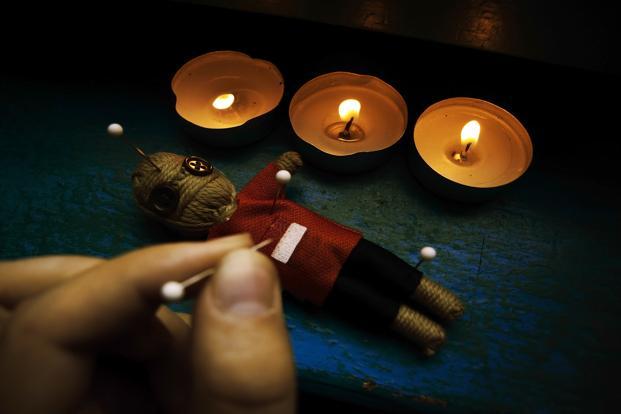
What is banned:
- Facilitating any person or persons roll over (uruli seve) on the leaves of left over food by other persons in any public or religious places or similar practices that violate human dignity, also known as made snana
- Cercing any person to perform fire-walk at the time of jatras/religious festivals, causing physical injury
- Practice of piercing from rods from one side of jaw to another side of the jaw and including the tongue (baibiga practice)
- Pelting stones in the name of banamathi, mata-mantra and mata-mantra on the residential houses during night or day
- Prohibiting and preventing a person from taking medical treatment in the case of dog, snake, or scorpion bite, and instead giving him ‘treatment’ like mata-mantra, gandra-dora of such other things
- Forcing person to carry on evil practices such as killing of an animal by biting its neck (gaavu), that cause harm to public health nuisance
- Performing any inhuman, evil act and black magic in search of precious things, bounty and hidden treasure in the name of banamathi, mata-mantra, assaulting any person, parading naked or put a ban on his daily activities or instigate advise or encourage committing such inhuman acts
- To create an impression by declaring that a power inapprehensible by senses has influenced one’s body or that a person has possessed such power thereby create fear in the minds of people or to threaten others of evil consequences for not following the advice of such person or deceive defraud and deter them
- Under the pretext of expelling the ghost, assaulting by tying the person with rope or chain, beating by stick or whip to make the person drink footwear soaked water, causing pain by way of touching heated object to organs or body of a person, forcing a person to perform sexual act in the open, practice inhuman acts, putting urine or human excreta forcibly in the mouth of a person or practice any such acts
- Creating panic in the minds of public in general by way of invoking ghost or mantras
- Preventing person taking medical treatment and diverting him or her to practice inhuman evil and aghory acts
- Claiming to perform surgery by fingers or claiming to change the sex of a foetus in womb of a woman
- Persuading, propagating or facilitating rituals that involve self-inflicted injuries such as hanging from a hook: inserted into the body (sidi) or pulling a chariot by hook inserted into the body
- Persuading, propagating or facilitating rituals involving harm inflicted on children in the name of curing them, such as throwing them on thorns or from heights and branding them with heated objects
- Practising evil practices against women by forcing isolation, prohibiting re-entry into the village or facilitating segregation of menstruating, or pregnant women; and subjecting women to inhuman and humiliating practices such as parading them naked in the name of worship, or “betthale seve”
- Clarification: The Bill was earlier named the Karnataka Prevention and Eradication of Human Sacrifices and other Inhuman Evil and Aghori Practices and Black Magic Bill, 2017, it has since been renamed the Karnataka Prevention and Eradication of Inhuman Evil Practices and Black Magic Bill, 2017.
- Role of MLA,MP in Karnataka ULB

- According to councillors, MLAs are interfering in the day-to-day functioning of municipal bodies, and in the implementation of development and welfare schemes.
- They feel that though the law allows MLAs, MLCs and MPs to participate in meetings, they overstep their limits and interfere in the administration of local bodies, violating the principles of decentralisation of power.
- Urban Development Department clarified that though the MLAs are deemed to be members of urban local bodies under the Karnataka Municipalities Act, they do not have powers to override the bodies.
- Hidden factors in Man-Animal Conflict : Bandipur Tiger Reserve
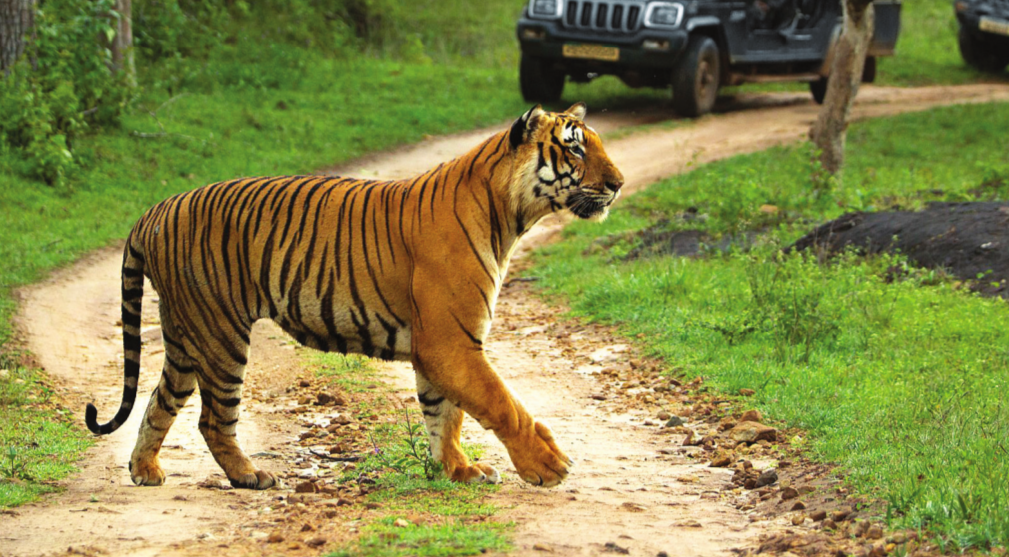
- Fluctuating coffee prices, lower demand for cow dung as manure and increasing foreign cattle varieties may be part of the changing local economy, fuelling man-carnivore conflict around Bandipur Tiger Reserve.
- Hit by the decline in demand for cow dung due to coffee planters adaptaion of less labour-intensive synthetic fertilizer sprays and with curbs of grazing in forests, the population of scrub cattle declined, while the more-expensive hybrid cattle which yielded better milk was preferred.
- Forest Department compensation, of around 10,000, does not cover the cost and livelihood loss of cows.
- Moreover, with little employment opportunity in the tourism sector, which hires an estimated 0.0002% of the employable population of local community, these attacks were worsening cultural tolerance towards tigers.
General
- Conservation of TajMahal :SC orders,Govt Plans

- The Supreme Court directed the Uttar Pradesh government to file within four weeks a vision document for protection and preservation of the Taj Mahal.
- The apex court also directed the state government to explain why there was a sudden flurry of activities in and around the Taj Mahal and the Taj Trapezium Zone (TTZ) and why leather industries and hotels were coming up there.
- TTZ is an area of about 10,400 sq kms spread over the districts of Agra, Firozabad, Mathura, Hathras and Etah in Uttar Pradesh and Bharatpur in Rajasthan.
- Environmentalist M.C. Mehta, who had filed a plea seeking protection of the Taj from the ill-effects of polluting gases and deforestation in and around the area, had earlier told the bench that the TTZ was an “ecologically sensitive area” and the government should have come out with a comprehensive policy for preservation and protection of the Taj.
- The apex court, which is dealing with Mr. Mehta’s petition, has been monitoring development in the area to protect the Taj Mahal, built by Mughal emperor Shah Jahan in the memory of his wife Mumtaz Mahal in 1631. The mausoleum is a UNESCO World Heritage Site.
- ISRO for Manned Space Mission

- The process for selecting three astronauts for India’s first manned space flight will begin at the earliest to give them enough time to train for the 2022 mission, which is slated to cost less than 10,000 crore.
- A seven-tonne orbital module consisting of a crew module with three astronauts and a service module would be sent into space in launch vehicle Mark-3. Within 16 minutes of its launch from Sriharikota, the module would reach the low-earth orbit at 400km, where it would remain for five to seven days. The astronauts would conduct micro-gravity experiments, which is the main purpose of the mission.
- On seventh day, the crew module would re-orient and separate itself from the service module. It would land on earth within 36 minutes, in the Arabian Sea, close to Ahmedabad.
- Punjab passes Anti-Sacrilege Bill

- The Punjab Assembly unanimously passed Bills for an amendment to the Indian Penal Code (IPC) and the Code of Criminal Procedure (CrPC) to make desecration of all religious texts punishable with life imprisonment.
- The Indian Penal Code (Punjab Amendment) Bill, 2018, has inserted Section 295AA to provide that “whoever causes injury, damage or sacrilege to Sri Guru Granth Sahib, Srimad Bhagavad Gita, the Holy Quran and the Holy Bible with the intention to hurt the religious feelings of the people shall be punished with imprisonment for life.”
- It also states, “In the Indian Penal Code, 1860, in its application to the State of Punjab, in Section 295, for the words “two years,” the words “10 years” shall be substituted.
- In the recent past there have been attempts to disturb peace and communal harmony in the State by committing sacrilege of Sri Guru Granth Sahib, Srimad Bhagwad Gita and Holy Quran. The government is determined not to allow such incidents and ensure deterrent action against all those who commit such sacrilege.
- MoP for CJI appontment
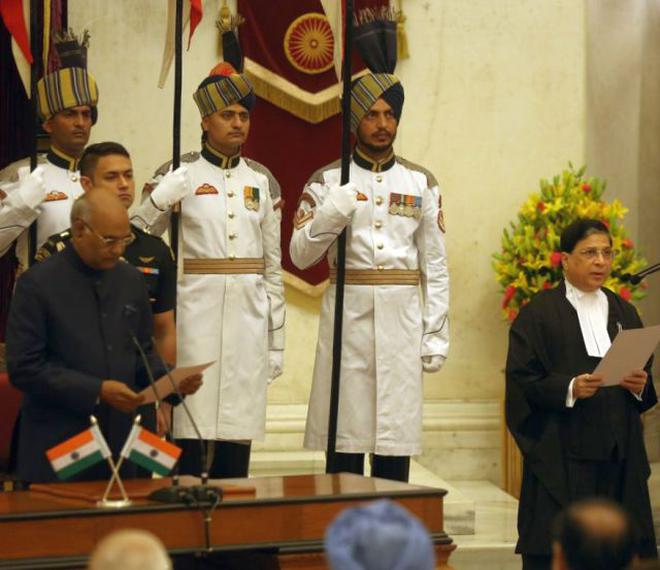
- The Chief Justice of India and the Judges of the Supreme Court are appointed by the President under clause (2) of Article 124 of the Constitution.
- Appointment to the office of the Chief Justice of India should be of the seniormost Judge of the Supreme Court considered fit to hold the office. The Union Minister of Law, Justice and Company Affairs would,at the appropriate time, seek the recommendation of the outgoing Chief Justice of India for the appointment of the next Chief Justice of India.
- 1 Whenever there is any doubt about the fitness of the seniormost Judge to hold the office of the Chief Justice of India, consultation with other Judges as envisaged in Article 124 (2) of the Constitution would be made for appointment of the next Chief Justice of India.
- 2 After receipt of the recommendation of the Chief Justice of India, the Union Minister of Law, Justice and Company Affairs will put up the recommendation to the Prime Minister who will advise the President in the matter of appointment.
- War crimes in Yemen ;Soudi Arabia,UAE responsible :UN


- Three experts working for the UN's top human rights body say the governments of Yemen, the United Arab Emirates and Saudi Arabia may have been responsible for war crimes including rape, torture, disappearances and "deprivation of the right to life" during three and a half years of escalated fighting against rebels in Yemen.
- In their first report for the Human Rights Council, the experts also point to possible crimes by rebel Shia militia in Yemen, which has been fighting the Saudi-led coalition and Yemen's government since March 2015.
- They urged the international community to "refrain from providing arms that could be used in the conflict" — an apparent reference to countries like the United States and Britain that help arm the Saudi-led coalition, as well as Iran, which the coalition has accused of arming the Houthis.
- Vostok -2018 Exercises : Russia & China & Mongolia

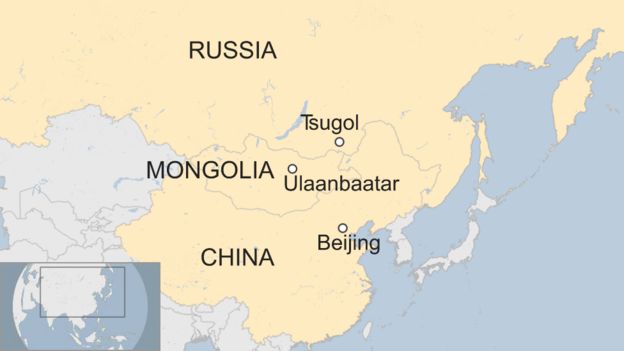

- Russia will next month hold its biggest war games since at least the 1980s, with around 300,000 troops and 1,000 aircraft.
- The Vostok-2018 exercises will be carried out from September 11 to 15 in the country's east with the participation of China and Mongolia.
- This will be something of a repeat of Zapad-81, but in some senses even bigger of the 1981 war games in Eastern Europe.
- Moscow said last year's Zapad-2017 military drills, conducted in ally Belarus and regions of Russia, saw the participation of roughly 12,700 troops. But NATO claimed Russia could have been massively underreporting the scale of those exercises, which some of the alliance's eastern members said involved more than 100,000 servicemen.
- Just days after Russia ended the Zapad-2017 exercises, thousands of Polish and other NATO troops launched major defensive exercises in Poland's north.
- The Dragon-17 exercise involved some 17,000 land, air force and navy troops and some 3,500 units of equipment and ran for about a week -- the first time the biannual drill was joined by Poland's new Territorial Defense Forces, which train civilian volunteers to support regular troops










